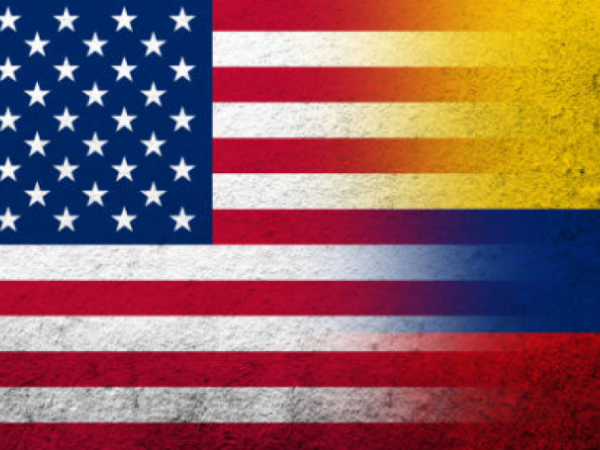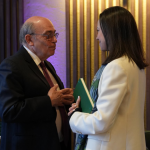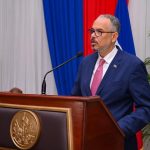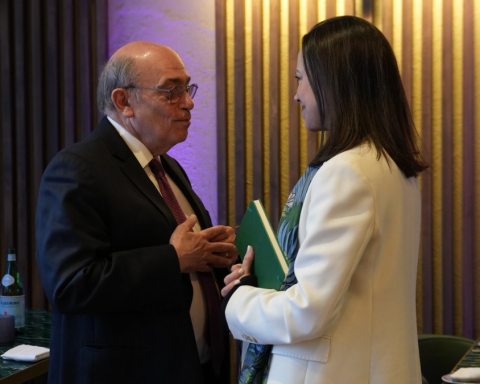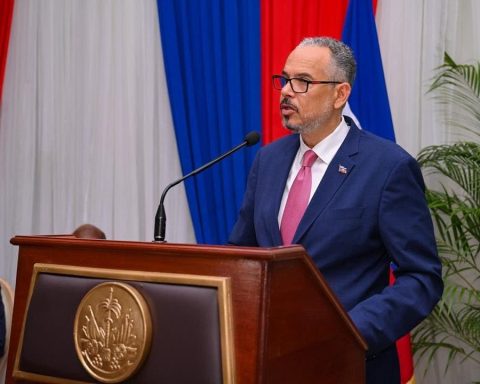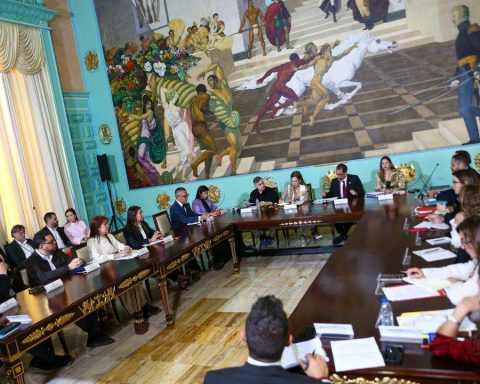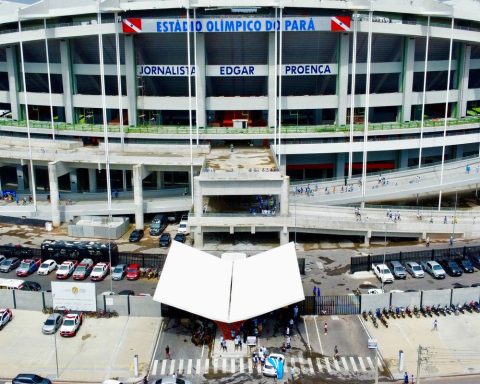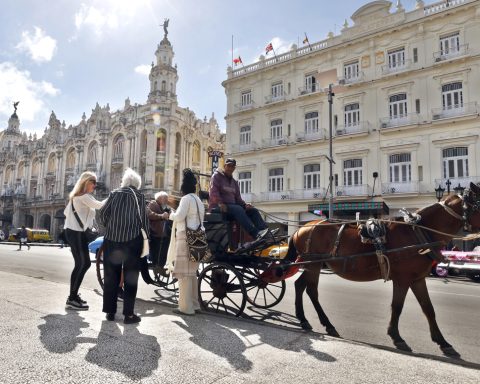With a strong step in diplomatic decisions, the president of the United States, Donald Trump, signed an executive order where stopped international aid from the American giant for at least 90 dayswith the aim of guaranteeing that the resources allocated are used strategically in the national interests of this country.
(See: Was the Canal a concession or a gift from the United States to Panama?)
However, aid from the power is considered an investment in countries like Colombia, so when broken down by sector, Peace and security, humanitarian assistance, economic development and democracy, human rights and governance would be the most affected areas in the country.
According to information from Foreign Assistance, analyzed by the Colombian American Chamber of Commerce (AmCham Colombia), During 2023 alone, Colombia received a total of US$740 million in aid from the United Statesthis value being 9% higher than that allocated in 2022, which was US$680 million.
(Read also: Climate finance at risk due to US withdrawal from the Paris Agreement)
Of that grand total, the sector that received the most resources, during 2023, was peace and security, to which a total of US$225.6 million was allocated, with an increase of 3% compared to the previous year’s cooperation.. Likewise, the money allocated for humanitarian assistance was US$223.4 million, however, this allocation was 9% lower than the previous year.
Another that maintains strong aid financing from the American giant is economic development. For this front, in 2023, US$100.1 million were allocated, 20% higher than in 2022. It is followed by democracy, human rights and governance with US$85.1 million.
(See: Corporations celebrate economic measures taken by Trump)
Illicit crops
iStock
It is worth detailing that during the period analyzed, support programs, education and social services and health, were some of the areas with the greatest increases. Specifically for the case of the first, the United States allocated a total of US$76.9 million.
(See more: Trump’s executive order that puts millions of dollars in aid to Colombia at risk)
Meanwhile, US$21.1 million were given for cooperation in education, this figure being 105% higher than that of 2022, which was US$10.3 million. The same wayresources for health increased by 400%, going from US$1.1 million in 2022 to US$5.5 million in 2023.
According to AmCham Colombia, The country is one of the largest recipients of US aid in Latin America, so this measure generates uncertainty, especially due to the tense relationship that may exist between the Petro government and the Secretary of State, Marco Rubio.which has been characterized by its critical stance towards leftist governments in Latin America.
(Read also: Which country is most likely to ‘conquer’ space? This is what the AI says)
For María Claudia Lacouture, president of AmCham Colombia, within the framework of the United States budget allocations for 2024, Colombia received a total of US$401 million in aid, as stipulated in the Appropriations Act approved by the US Congress.

Dollars
iStock
The distribution of funds shows key areas of cooperation between both countries. Of the allocated resources, US$134 million were allocated to the fight against drug trafficking, meaning a cut of US$15 million compared to the previous year.
(Read: US departure from WHO a severe financial blow to a vital agency)
In addition, US$206 million were focused on development, human rights and strengthening justice programs, with a decrease of US$24 million compared to 2023. Finally, US$37 million was allocated to finance the Armed Forces, maintaining support for security.
“It should be noted that President Joe Biden’s administration had requested US$413 million for Colombia, but Congress approved a lower figure, reflecting a balance between the needs raised and fiscal limitations.”, he indicated.
Besides, The management of these funds is subject to various conditions. If the resources have not been disbursed, the President can delay their execution through guidelines from the Department of State or the United States Agency for International Development (USAID).
(See: Video: Donald and Melania Trump star at the Commander in Chief’s inaugural ball)
In some cases, it is also possible to carry out administrative rescheduling within certain limits, without the need for legislative approval. Nevertheless, If the funds are not used during the corresponding fiscal year, they expire and cannot be usedwhich underlines the importance of efficient and timely implementation of aid to benefit bilateral priorities.

International cooperation
iStock
Role of the private sector
Although President Donald Trump’s decision involves Colombia, according to Ricardo Triana, executive director of the American Business Council (CEA), This also poses challenges for the country’s companies.
(See also: What’s next for TikTok after Donald Trump arrives at the White House?)
“Although we understand the uncertainty in the short term, these 90 days are understood as a period of synchronization with the priorities and approaches of this new government, which we believe will be focused on economic development, the fight against drug trafficking, migration and private sector involvement. In this sense, cooperation approaches different from those mentioned, such as the conservation of biodiversity and the environment, among others, may be affected.”, he opined.
Likewise, the director added that despite the challenges that the suspension of international aid may represent for Colombia, it is an opportunity for the private sector to continue strengthening and betting on the country due to its emerging market, natural resources and location. strategic.
(See: What’s coming for the United States after its second exit from the Paris Agreement)
“To maintain this investor interest, it is crucial that Colombia continues to establish a safe and stable environment, promoting economic and social development, and ensuring long-term sustainability by strengthening the rule of law and infrastructure.”, he highlighted.

The new job offers from the North American Embassy in Colombia.
iStock
What can Colombia do?
As mentioned by AmCham Colombia, It is crucial that the Colombian government adopts a comprehensive strategy to defend bilateral cooperation and avoid resource cuts by the United States.
(Read: First lawsuit against Trump as president for creation of the Department of Efficiency)
In the event that this situation occurs, a weakening of security and growth is projected and support for the country’s vulnerable communities would be curbed. “Colombia must act quickly, demonstrating tangible results and aligning strategic priorities with the United States to guarantee the continuity of this crucial support,” they say.
Additionally, they mentioned that there are factors in which action must be taken, precisely to maintain the aid with power. At first it details strengthening bilateral diplomacy, maintaining proactive dialogues with the new US authorities.
(See also: ‘America’s golden age begins’ and other iconic phrases from Trump’s speech)
This would be achieved through demonstrable results through figures that demonstrate the positive impact of assistance in critical areas. For example, in 2024, Colombia reached a record in cocaine seizures, seizing more than 848.5 tonswhich represents an increase of 14% compared to the 741 tons seized in 2023.

International cooperation
iStock
María Claudia Lacouture, assured that work must also be done on international operations, such as ‘Operation Orion’, led by Colombia, in which 62 countries participated and resulted in the seizure of 225 tons of cocaine and more than 1,000 tons of marijuanain addition to the interception of six semi-submersibles used for drug trafficking.
(Read more: Trump revoked Cuba’s removal from the list of states that promote terrorism)
“Areas of shared interest, such as regional security and the fight against drug trafficking, must be identified and promoted to strengthen the justification for continued aid. Also, mobilize the private sector and civil society, including US companies in Colombia and NGOs. Cooperation is not an expense, it is an investment in security, stability and development and Colombia must act decisively to protect it” he concluded.
